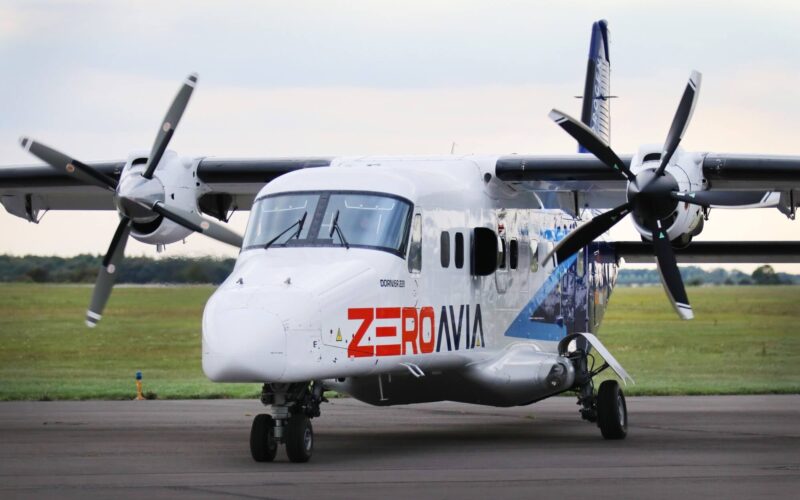ZeroAvia, a hydrogen-electric aircraft developer, has partnered with AGS Airports to bring zero-emission flights to Scotland.
The two organizations have announced an agreement to develop hydrogen fuel infrastructure, regulatory framework requirements, and resourcing required for delivering zero-emission flights from Aberdeen and Glasgow airports.
The team at AGS, which owns and operates Aberdeen (ABZ), Glasgow (GLA) and Southampton (SOU) airports, will work with ZeroAvia’s specialist airport infrastructure team to assess the opportunities for hydrogen production onsite, as well as exploring potential commercial routes.
When could zero-emission flights become a reality?
Arnab Chatterjee, VP, Infrastructure at ZeroAvia, said the company has been increasing its work with airports in recent months to better understand the operational needs and requirements for hydrogen. “Working with the team at AGS allows us to plan for some of the commercial routes that we will be able to support in a little over two years’ time, and do so in the setting of a major international airport.”
In the announcement, ASG Airports said that switching some routes to aircraft powered by ZeroAvia’s hydrogen-electric powertrain will help the organization to significantly reduce Scope 3 carbon emissions from aircraft and reduce noise and air quality impacts locally.
At the same time, AGS will explore how hydrogen can be used to remove emissions across ground operations.
ZeroAvia will share its experience in developing and operating its Hydrogen Airport Refuelling Ecosystem (HARE) at Cotswold Airport in Gloucestershire, UK.
The partners will work towards a flight demonstration powered by ZeroAvia’s ZA600 600kW hydrogen-electric engine, which is on a path towards certification by 2025. Commercial routes from Scotland’s biggest city, Glasgow, could follow soon after.
Why Scotland?
Derek Provan, chief executive of AGS Airports, said: “The development of hydrogen powered aircraft has the potential to completely revolutionize aviation and it is becoming an increasingly viable option for regional and short-haul aircraft.
“As a regional airport group serving the Highlands and Islands of Scotland as well as the Channel Islands from Southampton, AGS will be the perfect testbed for hydrogen flight. Through our partnership with ZeroAvia, we’ll address some of the challenges associated with the generation, delivery and storage of hydrogen on-site and how we can prepare our infrastructure to support zero-emission flights.”
The ZA600 is designed to power 9-19-seat aircraft up to 300 nautical miles and will soon be flight tested for the first time in a 19-seat Dornier 228.
Minister for Transport, Jenny Gilruth, said: “This is an encouraging development as hydrogen has the potential to be a true zero-emission fuel and could play a key role in helping the Scottish aviation sector reach net zero.
“Many of the routes that operate from Glasgow and Aberdeen to airports across the Highlands and Islands are served by small aircraft and real social, economic and environmental benefits could be delivered by cleaner, quieter and lower cost aircraft.”
Hydrogen-electric engines use hydrogen in fuel cells to generate electricity, which is then used to power electric motors to turn the aircraft’s propellers, with the only by-product being water.

